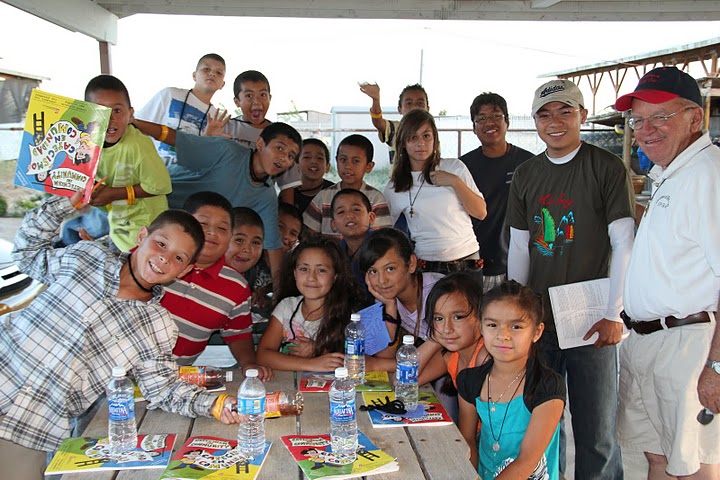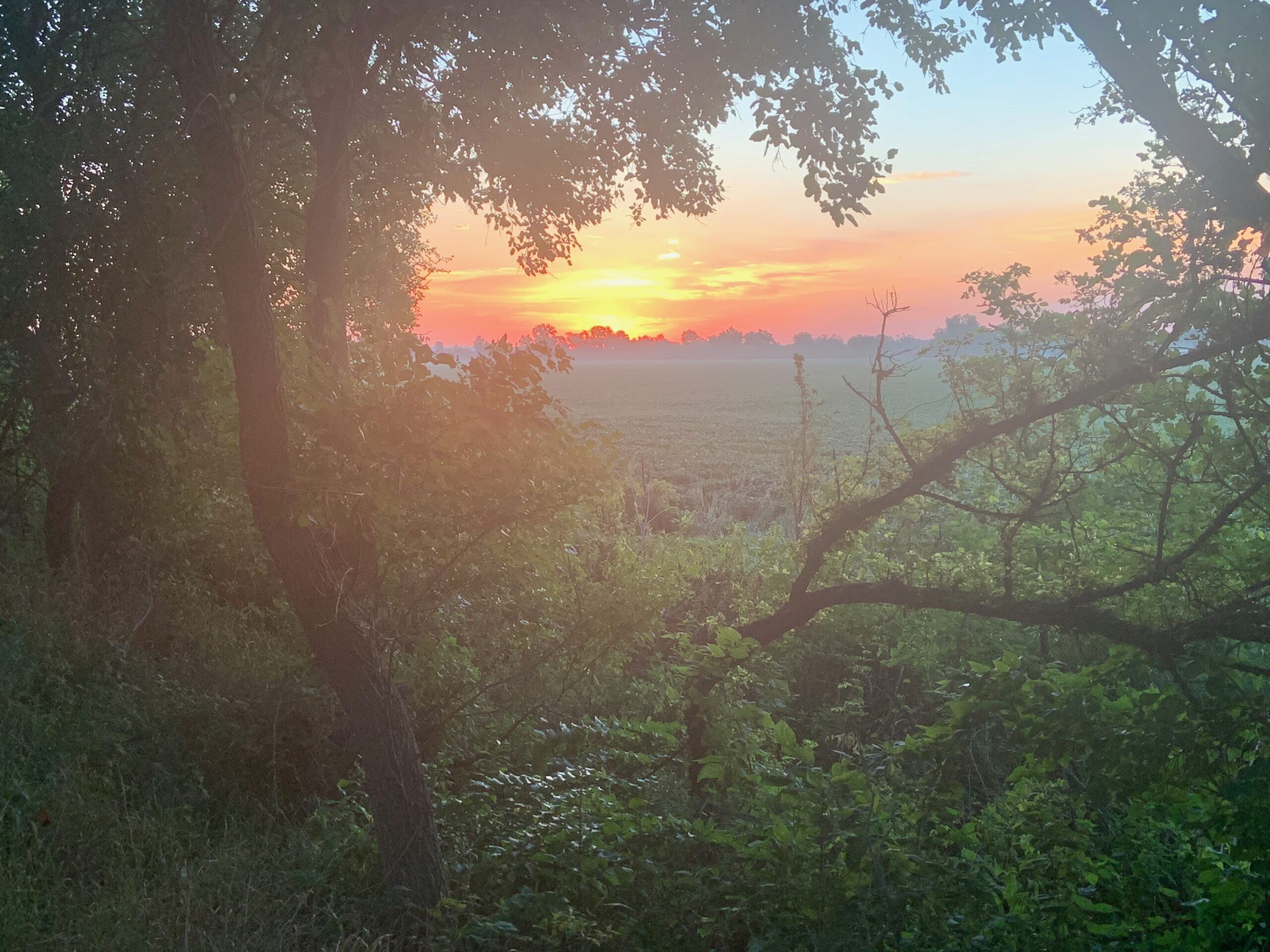Un Nuevo Camino – A New Direction: Bautícenlos – Baptize them
Bautícenlos
Comencé esta serie de reflexiones como una forma de buscar buenas noticias en el inicio del año 2021. El año pasado fue un año difícil. La forma en que siempre hemos hecho las cosas se interrumpió al no poder reunirnos para celebrar la Misa y otros momentos. Para crear una nueva normalidad, necesitamos nuevo camino. Necesitamos nuevas maneras de celebrar la presencia de Cristo entre nosotros. El bautismo nos inicia en la vida de fe.
Cuando comencé esta reflexión, preparé un plan para diez días de reflexiones y pensé que poner el bautismo al alcance de los pobres sería una reflexión fácil, pero ha sido más difícil de lo que imaginaba. Me preocupan los obstáculos que experimentan los pobres al pedir recibir la gracia del sacramento. Los migrantes encuentran que las reglas de la Iglesia en los Estados Unidos son confusas e inconsistentes cuando piden que sus hijos reciban los sacramentos de iniciación. Un trabajador migrante dijo: “Las reglas de la Iglesia aquí forman barreras que separan a los migrantes de la gracia de los sacramentos”.
Las dificultades de los pobres para recibir los sacramentos se ven en la forma en que muchos preguntan sobre el bautismo de un niño. La pregunta que se hace es: “Padre, ¿cuándo son las clases para el bautismo?” Le pregunto: “¿Alguna vez has estado en una clase de bautismo?” Muchos dicen que han tenido que asistir a una clase antes de bautizar a otros niños. A menudo, las clases han sido necesarias tanto para los padres como para los padrinos. Me entristece cuando escucho a las personas sentir que necesitan ir a clase otra vez.
Es importante que descubramos las necesidades espirituales de quienes piden la gracia de un sacramento, pero no debemos asumir que la persona necesita asistir a una clase o un largo programa de preparación. Jesús dijo: “Hagan discípulos de todas las naciones, bautícenlos y enséñenles”. El discipulado no comienza asistiendo a clases. El discipulado proviene de aprender acerca de Jesús y querer seguirlo.
Cuando Felipe se encontró con el etíope leyendo el libro de Isaías en el camino, le habló al etíope acerca de Jesús. Después de un rato, el etíope dijo: “Aquí hay agua, ¿qué es lo que impide que me bautice”. Bajaron al agua y Felipe lo bautizó. No hubo barreras, ni padrinos, ni serie de clases.
En el ministerio migrante, instruyo a los líderes laicos y catequistas a entrevistar a una persona que desee que su hijo reciba cualquiera de los tres sacramentos de iniciación antes de decidir qué deben hacer antes de recibir un sacramento. Un ejemplo: los padres desean bautizar a un niño recién nacido. Nuestra respuesta debería ser: “¿Qué hermoso bebé? ¿Cómo se llama su hijo? Por supuesto, bautizaremos a su hijo”. Después de asegurarles el bautismo, podemos obtener información sobre los padres y la familia. Una entrevista bien hecha permite al ministro descubrir qué camino tomar para preparar a la familia para celebrar el signo de la fe en el sacramento.
En cuanto al bautismo, nunca les pido a los padres que asistan a una clase de bautismo si ya han asistido a una clase antes como padres o padrinos. También acepto que han asistido a esas clases con su palabra, sin requerir un documento o una carta de un pastor. La suposición de mala voluntad y falta de preparación no es una buena práctica. Necesitamos reducir las barreras que la gente ha experimentado en el pasado. Necesitamos presentar una fe alegre y acogedora mientras vivimos la “alegría del Evangelio”.
(Mañana: Enséñeles)
Baptize them
I began this series of reflections as a way of looking for good news as the year 2021 begins. Last year, was a difficult year. The way that we have always done things was interrupted as we could not gather to celebrate Mass and other moments. To create a new normal, we need some new directions. We need new ways to celebrate the presence of Christ amongst us. Baptism initiates us into the life of faith.
When I began this reflection, I prepared a plan for ten days of reflections and thought that making baptism available to the poor would be an easy reflection, but it has been more difficult than I imagined. I am troubled by the obstacles that poor people experience in asking to receive the grace of sacrament. Migrants find rules in the Church in the U.S. confusing and inconsistent when asking that their children receive the sacraments of initiation. One migrant worker said, “Church rules here form barriers that prevent migrants from receiving the grace of the sacraments.”
The difficulties of the poor to receive sacraments is seen in the way many ask about baptism for a child. The question asked is, “Father, when are your classes for baptism?” I ask, “Have you ever been to a baptism class before?” Many say that they have had to attend a class before baptizing other children. Often the classes have been required for both the parents and the godparents. It saddens me when I hear people feeling that they need to go to class again and again.
It is important that we discover the spiritual needs of those who ask for the grace of a sacrament, but we should not make the assumption that the person needs to attend a class or a long program of preparation. Jesus said, “Make disciples of all nations, baptize them and teach them.” Discipleship does not begin in attendance at classes. Discipleship comes from learning about Jesus and wanting to follow him.
When Philip met the Ethiopian reading from the book of Isaias on the road, he told the Ethiopian about Jesus. After a short time, the Ethiopian said, “There is water here, what is to stop me from being baptized.” They went down to the water and Philip baptized him. There were no barriers, no godparents, no series of classes.
In Migrant ministry, I instruct lay leaders and catechists to interview a person who wishes that their child receive any of the three sacraments of initiation before deciding what they need to do before receiving a sacrament. An example: Parents wish to baptize a recently born child. Our response should be, “What a beautiful baby? What is your child’s name? Of course, we will baptize your child.” After assuring them of the baptism, we can get information about the parents and family. An interview done well allows the minister to discover what path to take in preparing the family to celebrate the sign of faith in sacrament.
As for baptism, I never require parents to go to a baptism class if they have gone to a class before either as parent or godparent. I also accept that they have gone to such classes on their word, not requiring a document or a letter from a pastor. The assumption of bad will and lack of preparation is not good practice. We need to lower the barriers that people have experienced in the past. We need to present a welcoming, joyful faith as we live the “Joy of the Gospel.”
(Tomorrow: Teach them)





